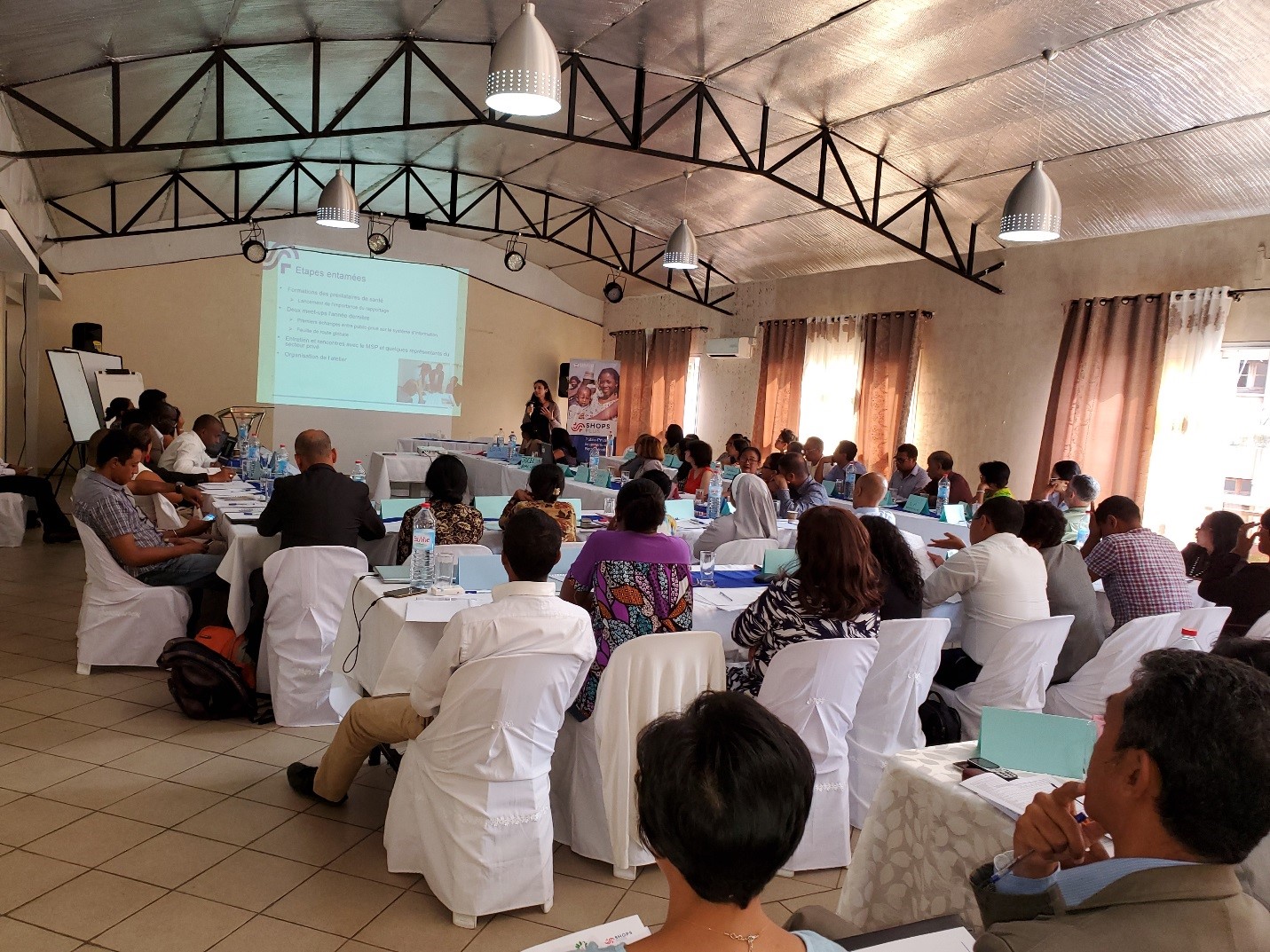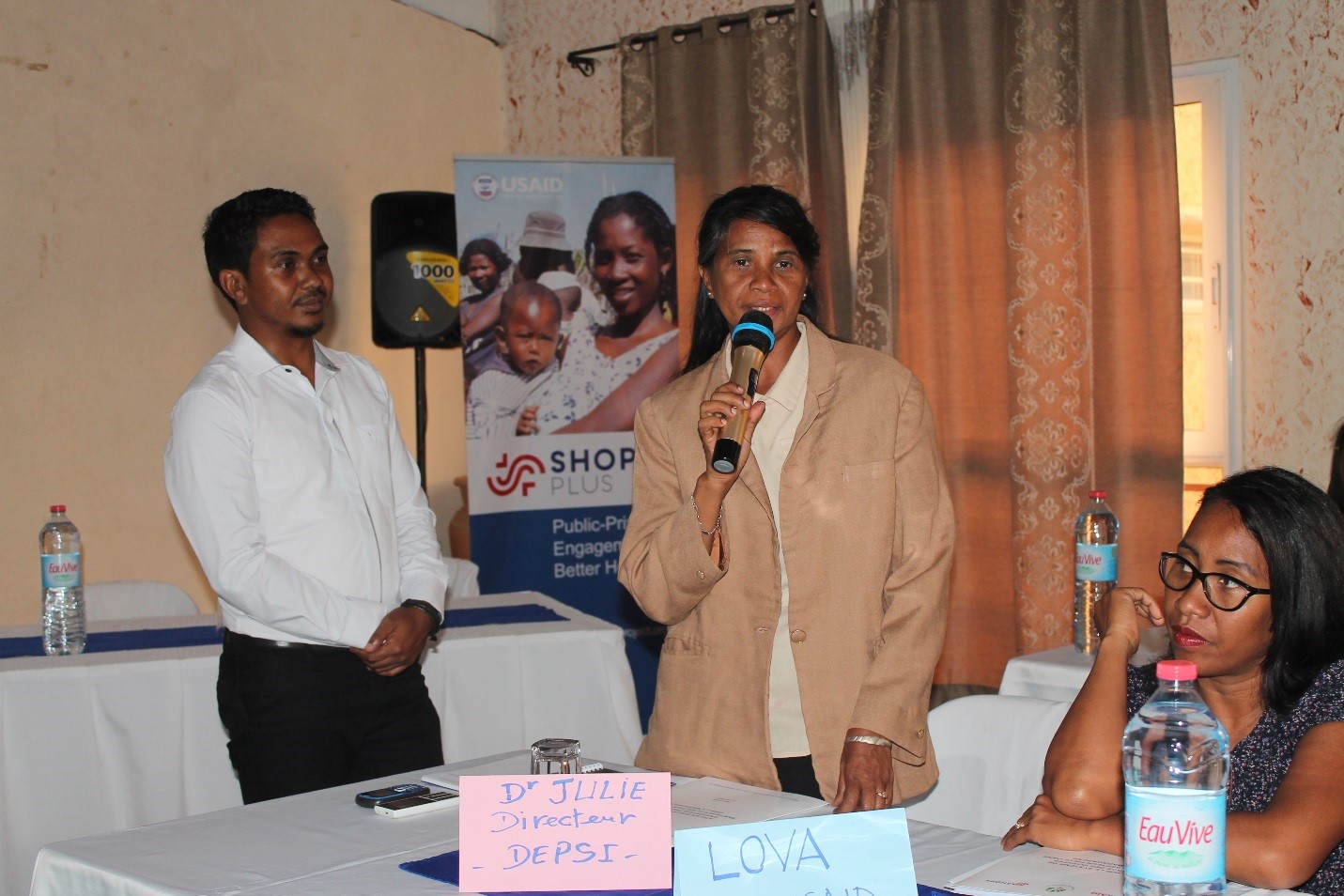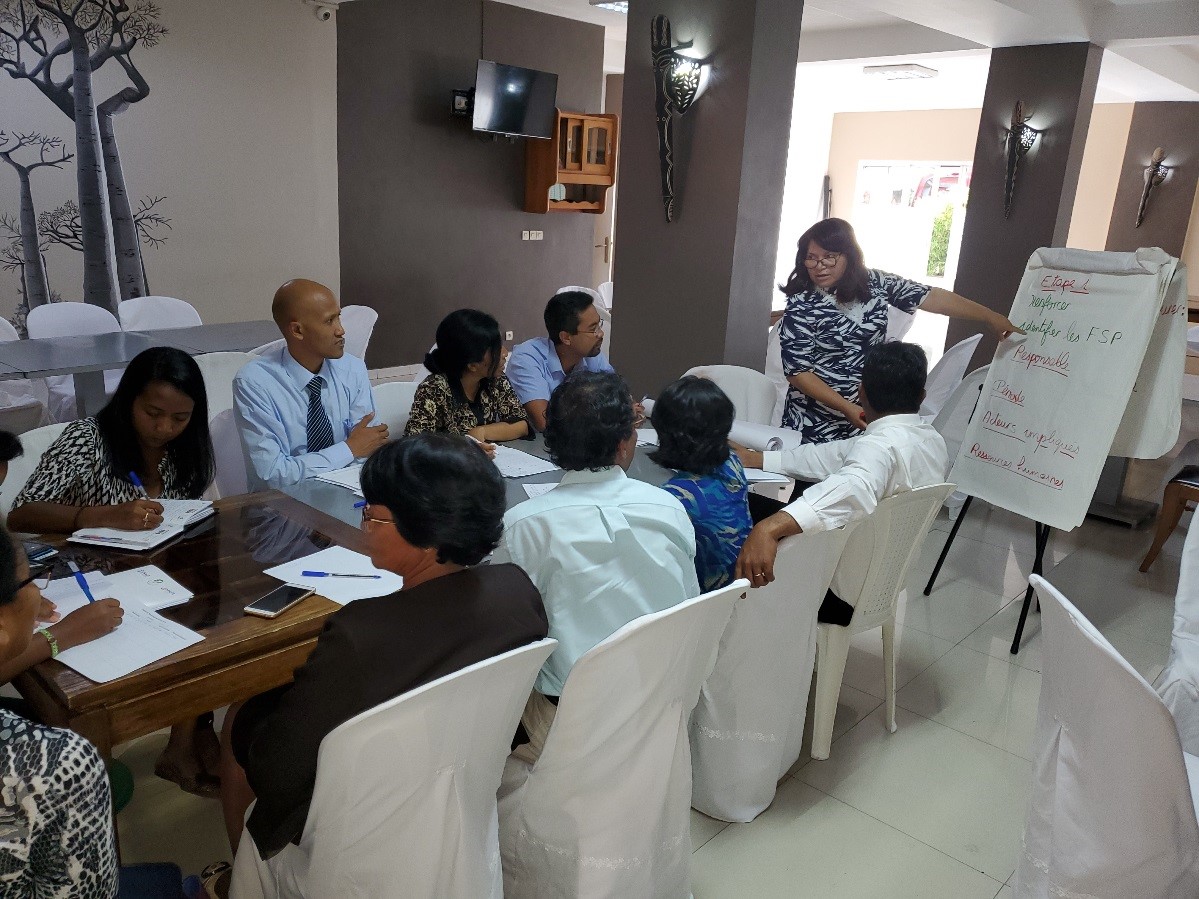Tackling the challenge of routine health reporting in the private sector

On April 3, the SHOPS Plus team in Madagascar convened representatives from the Ministry of Health, the private health sector, implementing partners, and donors in Antananarivo to discuss how to improve private sector participation in the new health management information system (HMIS).
An HMIS is one of the building blocks that is essential for health system strengthening because it supports informed decision-making at the national, state, and local levels. However, an HMIS is only as useful as the information that it captures. While public facilities and providers are typically included in the development of national HMIS processes and protocols, training, and the distribution of relevant materials, the private sector can often be neglected and face additional hurdles to participating in routine health reporting.
The day-long workshop, facilitated by SHOPS Plus, brought together key stakeholders to identify and address barriers to routine health reporting in the private sector. The workshop comes on the heels of the Ministry of Health’s national implementation of the District Health Information System (DHIS) 2 platform and reflects the ministry’s eagerness to improve routine reporting in the private sector. According to the Madagascar Department of Studies and Information System Planning (DEPSI), only 19 percent of registered private facilities are currently reporting, compared with 81 percent of facilities in the public sector.

The private sector, represented by more than 35 private, religious, and independent clinicians, nurses, midwives, and proprietors, shared what they felt was a disconnect between reporting expectations and necessary engagement and support from the Ministry of Health. Major challenges identified by participants from the private sector included a lack of procedural information and communication from the public sector, unavailability of registers and reporting forms, issues concerning data privacy and use, accepted reporting formats, little to no feedback following reporting, and continuous revision of tools.
In response to the principle challenges identified by the private sector, participants identified corresponding activities in small, interactive breakout sessions. The larger group validated these activities in the final plenary session. Through these exercises, the participants developed an Action Plan with four primary objectives, each underpinned by a number of concrete activities.
The Action Plan objectives are:
- Establish a reliable database of private sector facilities
- Improve collaboration and communication between the Ministry of Health and the private sector
- Ensure fluidity, promptness, and completeness of monthly reports
- Ensure private sector access to health information

At the conclusion of the workshop, representatives of the private sector stepped forward to lead specific activities and participate in more open channels of communication on behalf of their private sector colleagues. They reported being energized by this new access to information and resources for reporting. In the Action Plan, DEPSI, USAID, and implementing partners now have a working roadmap to help them support the participation of the private sector in routine reporting. In the coming months, stakeholders will operationalize their support of these activities to advance private sector participation in the national HMIS.
Learn more about our work in public-private engagement and Madagascar.